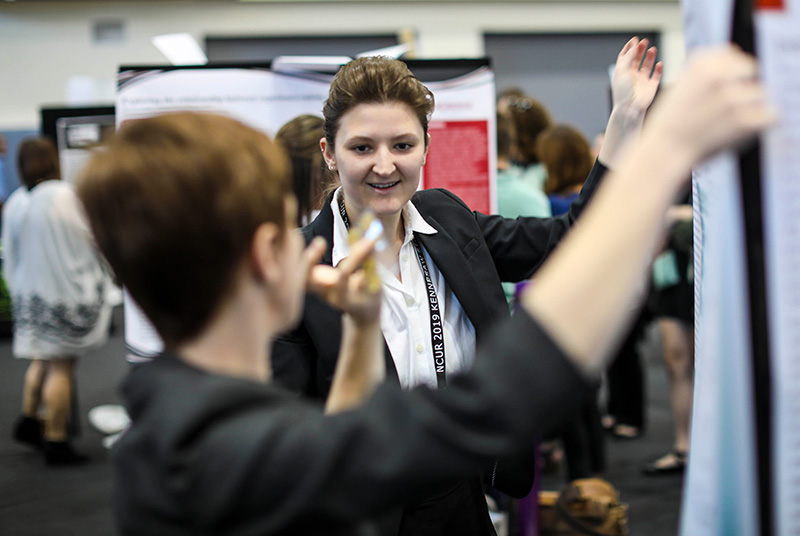Baenninger, M., & Hakim, T. (1999). Undergraduate research as a curricular element: Multidisciplinary courses at the College of New Jersey. Council on Undergraduate Research Quarterly, 20, 9-13.
Bauer, K. W., & Bennett, J. S. (2003). Alumni perceptions used to assess undergraduate research experience. Journal of Higher Education, 74, 210-230.
Bowman, M. H., & Stage, F. K. (2002). Personalizing the goals of undergraduate research. Journal of College Science Teaching, 32, 120-125.
Chopin, S. F. (2002). Undergraduate research experiences: The translation of science education from reading to doing. The Anatomical Record, 269, 2-10.
Hunter, A., Laursen, S. L., & Seymour, E. (2006). Becoming a scientist: The role of undergraduate research in students’ cognitive, personal, and professional development. Science Education, 91, 36-74.
Hu, S., Scheuch, K., Schwartz, R., Gayles, J. G., & Li, S. (2008). Reinventing undergraduate education: Engaging college students in research and creative
activities. San Francisco, CA: Jossey-Bass.
Kardash, C. M. (2000). Evaluation of an undergraduate research experience: Perceptions of undergraduate interns and their faculty mentors. Journal of Educational Psychology, 92, 191-201.
Landrum, R. E., & Nelson, L. R. (2002). The undergraduate research assistantship: An analysis of the benefits. Teaching of Psychology, 29, 15-19.
Lopatto, D. (2003). The essential features of undergraduate research. Council on Undergraduate Research Quarterly, 24, 139-142.
Lopatto, D. (2004). Survey of Undergraduate Research Experiences (SURE): First Findings. Cell Biology Education, 3, 270-277.
Lopatto, D. (2004). What undergraduate research can tell us on research on learning. What Works, What Matters, and What Lasts, Volume IV. Retrieved from the Project Kaleidoscope website, http://www.pkal.org/documents/Vol4WhatUndergradResearchCanTellUs.cfm
McKinney, K., Saxe, D., & Cobb, L. (1998). Are we really doing all we can for our undergraduates? Professional socialization via out-of-class experiences. Teaching Sociology, 26, 1-13.
Seymour, E., Hunter, A., Laursen, S. L., & Deantoni, T. (2004). Establishing the benefits of research experiences for undergraduates in the sciences: First findings from a three-year study. Science Education, 88, 493-534.
Thiry, H., & Laursen, S. (2009). Evaluation of the undergraduate research programs of the Biological Science Initiative: Students’ intellectual, personal and professional outcomes from participation in research. Report prepared for the Howard Hughes Medical Institute. Boulder, CO: Ethnography
and Evaluation Research.
















